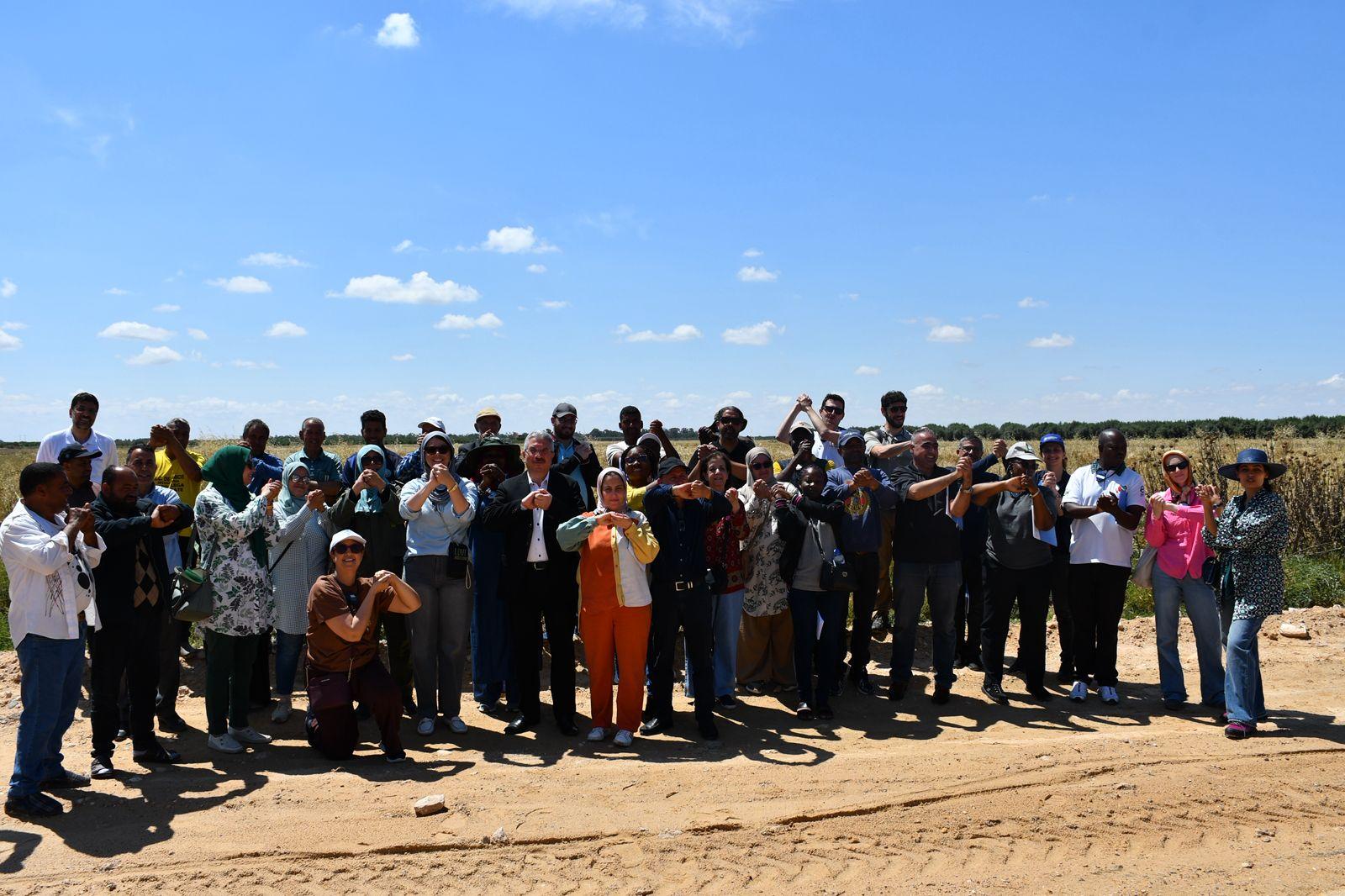Dryland countries convene in Tunisia to advance Nature-Based Solutions for sustainable land and water management

©FAO
Officials and experts from Algeria, Botswana, Iraq, Jordan, Lebanon, Malawi, Tanzania, Tunisia, Yemen, and Zimbabwe gathered in Hammamet from 12-16 May for an inter-regional workshop focused on advancing integrated, evidence-based approaches to land and water management in drylands.
In his opening remarks, Mr Hamadi Habaieb, Secretary of State at the Tunisian Minister of Agriculture, Water Resources and Fisheries, underlined the urgency of these issues: “In our arid and semi-arid regions, water has always been precious. Today, in the face of climate change, increasing urbanisation and changing agricultural needs, it is becoming a central challenge, but also a tremendous opportunity for transformation”.
Held in recognition of the Food and Agriculture Organization of the United Nations (FAO)’s 80th anniversary, the workshop was co-organized under the KHIBRA network by FAO’s Regional Office for the Near East and North Africa (RNE), the Inter-Regional Technical Platform on Water Scarcity (iRTP-WS) and the Dryland Sustainable Landscapes Impact Program (DSL-IP).
Fidaa Haddad, Senior Programme Officer at FAO RNE presented the KHIBRA platform, explaining how it will support the sharing and scaling of best practices between countries and regions. Under the theme “Integrated Approaches and Evidence-Based Good Practices in Sustainable Land Management (SLM) and Sustainable Forest Management (SFM) for Advancing WEFE Integration”, the workshop emphasized the role of Nature-Based Solutions (NBS) in tackling challenges such as drought, desertification, water scarcity, and biodiversity loss.
Mohamed Amrani, Senior Policy Officer at FAO’s North Africa Regional Office, highlighted the global significance of land degradation: “Approximately 25 percent of the Earth’s land is degraded, affecting the well-being of more than 3.2 billion people. At the same time, forests continue to disappear at an alarming rate, with a net loss of 4.7 million hectares per year globally between 2015 and 2020.” He added, “The interconnectedness of water, energy, food systems, and ecosystems is increasingly recognized as vital for achieving sustainable development and climate resilience”.
Participants shared experiences in combating land degradation, improving drought resilience, and applying NBS, while exploring the integration of the Water-Energy-Food-Ecosystems (WEFE) Nexus.
Two methodologies developed under DSL-IP were presented: the Integrated Landscape Assessment Methodology (ILAM), which supports evidence-based decision-making at the landscape level, and the Sustainable Landscape Production Framework (SLPF), which aims to achieve land degradation neutrality through improved land management, green value chains, and crop diversification.
The workshop also introduced the WEFE-Engine, a new open-access decision-support tool developed jointly by FAO RNE, the FAO Regional Office for Asia and the Pacific, and FutureWater. It integrates water accounting with WEFE nexus analysis, enabling users to model trade-offs and synergies across sectors and plan for future scenarios using global and local datasets. Participants provided feedback on its practical application in dryland settings.
As part of the hands-on learning experience, participants took part in a field visit organized in collaboration with the Regional Commissary for Agriculture Development of Kairouan (CRDA). The visit began in the Chébika region where participants visited a farmer field school on wheat in Mellalsa and discussed their sustainable practices with farmers. The visit then continued to “L’Ombre du Palmier,” a pilot eco-site located in Hajeb Layoun, to observe sustainable agricultural practices adapted to the climatic conditions of the region.
The workshop also highlighted progress in FAO’s Regional Initiative on Water Scarcity in the Near East and North Africa and DSL-IP implementation in Africa and Central Asia, reinforcing the power of shared knowledge and innovation to tackle dryland challenges.
